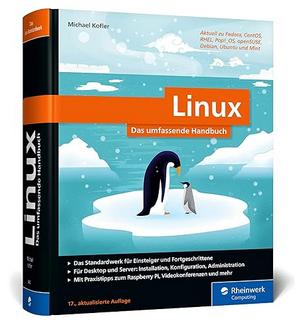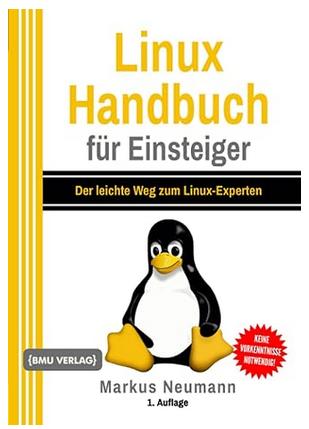Spamassassin 4.0.0 Release Notes
Introduction
Apache SpamAssassin 4.0.0 contains numerous tweaks and bug fixes over the past releases. In particular, it includes major changes that significantly improve the handling of text in international language.
As with any major release, there are countless functional patches and improvements to upgrade to 4.0.0. Apache SpamAssassin 4.0.0 includes several years of fixes that significantly improve classification and
performance. It has been thoroughly tested in production systems. We strongly recommend upgrading as soon as possible.
Important Notes
*** On March 1, 2020, we stopped publishing rulesets with SHA-1 signatures. If you do not update to 3.4.2 or later, you will be stuck at the last ruleset with SHA-1 signatures. Such an upgrade should be to 3.4.6 to obtain the contained security fixes ***
*** Ongoing development on the 3.4 branch has ceased. All future releases and bug fixes will be on the 4.0 series, unless a new security issue is found that necessitates a 3.4.7 release. ***
New plugins
There are three new plugins added with this release:
1 Mail::SpamAssassin::Plugin::ExtractText
This plugin uses external tools to extract text from message parts, and then sets the text as the rendered part. All SpamAssassin rules that apply to the rendered part will run on the extracted text as
well.
2 Mail::SpamAssassin::Plugin::DMARC
This plugin checks if emails match DMARC policy after parsing DKIM and SPF results.
3 Mail::SpamAssassin::Plugin::DecodeShortURLs
This plugin looks for URLs shortened by a list of URL shortening services. Upon finding a matching URL, plugin will send a HTTP request to the shortening service and retrieve the Location-header which
points to the actual shortened URL. It then adds this URL to the list of URIs extracted by SpamAssassin which can then be accessed by uri rules and plugins such as URIDNSBL.
Removed plugin
HashCash module, formerly deprecated, has now been removed completely
Notable changes
This release includes fixes for the following:
- Support for international text such as UTF-8 rules has been completed and significantly improved to include native UTF-8 processing
- Bayes plugin has been improved to skip common words aka noise words written in languages other than English
- OLEVBMacro plugin has been improved in order to detect more Microsoft Office macros and dangerous content. It has also been improved to extract URIs from Office documents for automatic inclusion in rules such as RBL lookups.
- You can now use Captured Tags to use tags “captured†in one rule inside other rules
- sa-update(1) tool has been improved with three new options: 1 forcemirror: forces sa-update to use a specific mirror server, 2 score-multiplier: adjust all scores from update channel by a given multiplier to quickly level set scores to match your preferred threshold 3 score-limit adjusts all scores from update channel over a specified limit to a new limit
- SSL client certificate support has been improved and made easier to implement with spamc/spamd
- DKIM plugin can now detect ARC signatures
- More work on improving the configuration and internal coding to use more inclusive and less divisive language
- spamc(1) speed has been improved when both SSL and compression are used
- The normalize_charset option is now enabled by default. NOTE: Rules should not expect specific non-UTF-8 or UTF-8 encoding in the body. Matching is done against the raw body, which may vary depending on
normalize_charset setting and whether UTF-8 decoding was successful. - Mail::SPF is now the only supported module used by the SPF plugin.
- Mail::SPF::Query use is deprecated, along with settings do_not_use_mail_spf, do_not_use_mail_spf_query.
- SPF lookups are not done asynchronously and you may consider using an SPF filter at the MTA level (pypolicyd-spf / spf-engine / etc) which generates a Received-SPF header that can be parsed by
SpamAssassin. - The default sa-update ruleset doesn’t make ASN lookups or header additions anymore. Configure desired methods (asn_use_geodb / asn_use_dns) and add_header clauses manually, as described in
documentation for the Mail::SpamAssassin::Plugin::ASN.
New configuration options
- All rules, functions, command line options and modules that contain „whitelist“ or „blacklist“ have been renamed to „welcomelist“ and „blocklist“ terms
- Old options will continue to work for backwards compatibility until at least the Apache SpamAssassin version 4.1.0 release
- New tflag „nolog“ added to hide info coming from rules in SpamAssassin reports
- New dns_options „nov4“ and „nov6“ added. IMPORTANT:; You must set nov6 if your DNS resolver is filtering IPv6 AAAA replies.
- Razor2 razor_fork option added. It will fork separate Razor2 process and read in the results later asynchronously, increasing throughput. When this is used, rule priorities are automatically
adjusted to -100.
- Pyzor pyzor_fork option added. It will fork separate Pyzor process and read in the results later asynchronously, increasing throughput. When this is used, rule priorities are automatically adjusted to -100
- urirhsbl and urirhssub rules now support „notrim“ tflag, which forces querying the full hostname, instead of trimmed domain
- report_charset now defaults to UTF-8 which may change the rendering of SpamAssassin reports
Notable Internal changes
- Meta rules no longer use priority values, they are evaluated dynamically when the rules they depend on are finished
- DNS and other asynchronous lookups like DCC or Razor2 plugins are now launched when priority -100 is reached. This allows short circuiting at lower priority without sending unneeded DNS queries
- New internal Mail::SpamAssassin::GeoDB module supporting RelayCountry and URILocalBL plugins provides a unified interface to Geographic IP modules. These include:
- MaxMind::DB::Reader (GeoIP2)
- Geo::IP
- IP::Country::DB_File
- IP::Country::Fast.
- Bayes and TxRep Message-ID tracking now uses a different hashing method
Quelle: https://spamassassin.apache.org/downloads.cgi
Interessiert in verschiedenste IT Themen, schreibe ich in diesem Blog über Software, Hardware, Smart Home, Games und vieles mehr. Ich berichte z.B. über die Installation und Konfiguration von Software als auch von Problemen mit dieser. News sind ebenso spannend, sodass ich auch über Updates, Releases und Neuigkeiten aus der IT berichte. Letztendlich nutze ich Taste-of-IT als eigene Dokumentation und Anlaufstelle bei wiederkehrenden Themen. Ich hoffe ich kann dich ebenso informieren und bei Problemen eine schnelle Lösung anbieten. Wer meinen Aufwand unterstützen möchte, kann gerne eine Tasse oder Pod Kaffe per PayPal spenden – vielen Dank.




